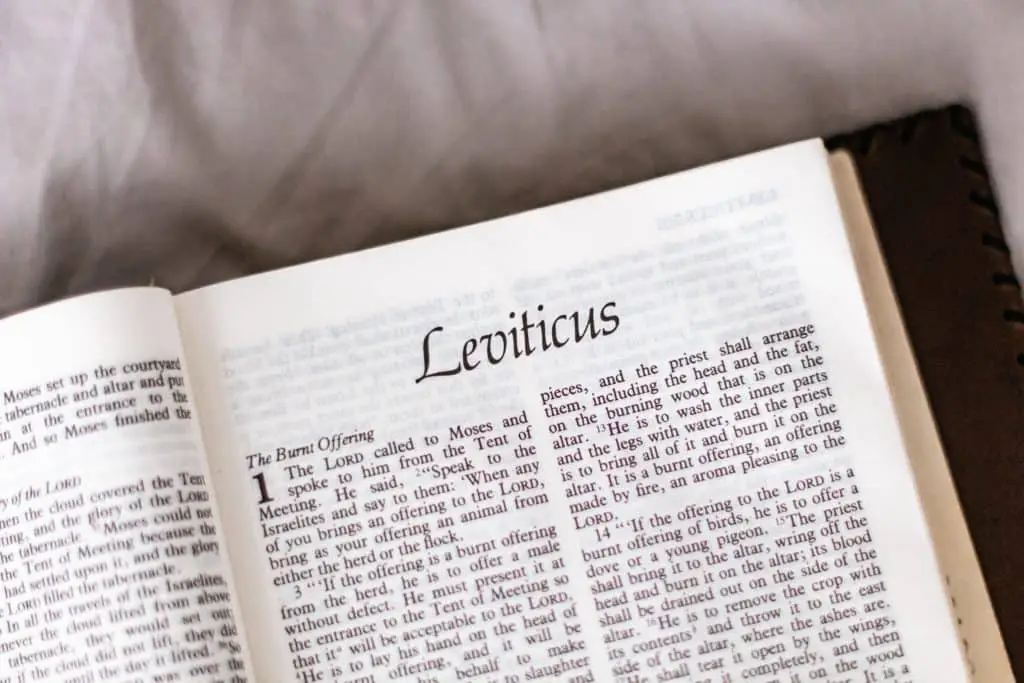I grew up with an understanding of the Old Testament law that was less than complete. To be honest it was shallow at best and totally unbiblical at worst. Statements like, “the law was rigid and impossibly hard to make us more thankful for the gift of salvation that Jesus gives” were not uncommon. At the time, this thought process sounded completely accurate. As far as I was concerned the OT law was full of a bunch of weird rules that made no sense to me, didn’t apply to me, and were impossible for anyone to keep. I felt so bad for the Israelites. What ridiculously high standards to have to live up to!
Of course, over the years as I’ve grown in my walk with Christ and my understanding of scripture my thoughts have changed, and the law has become more curious to me. However, it wasn’t until recently that I really started to dig into what the law meant to the Israelites and how that should impact what it means to me.
Understanding the Law in Context
Throughout the New Testament, the law is compared to the new covenant we find through Jesus, usually as a way to present the differences between the two and what they could accomplish. The problem comes when we equate the inability of the law to “make perfect those who draw near,” with the law being bad (Hebrews 10:1). The law isn’t bad just because it was a “mere shadow of what [was] to come” (Colossians 2:17).
As a matter of fact, the ancient Israelites wouldn’t have seen it as negative and restrictive as we often do. To understand the role that the law played in the larger story of scripture particularly to the ancient Israelites we have to take a look at the narrative leading up to the giving of the law.
In the beginning, God created humanity in his image with the desire to dwell among them, but humanity chose to disobey God separating themselves from Him. God later made a covenant with Abraham promising to bless him and the whole world through him. This covenant was the beginning of God’s ultimate plan to be reconciled to the humanity He had created. God blesses Abraham and his descendants become as numerous as the stars, just as God had promised, but through a series of events, God’s people find themselves slaves in Egypt.
In the Book of Exodus, God brings His people out of slavery in Egypt and declares to them that they will be His holy nation and a kingdom of priests or representatives. He enters into a covenant with them promising that they will be His people and He will be their King, but He didn’t want to be just any King. God wanted to be a King who was near to them and dwelled among them. He couldn’t do that though without first cleansing the people of their sins and giving them a set of rules to live by to set themselves apart from the rest of the world.
Leviticus is not a long list of unreasonable rules that God gave for kicks and giggles. To the ancient Israelites, the law was not a burden it was the greatest undeserved blessing they could have imagined. It was a set of guidelines that allowed them to have a personal relationship with their perfect King, the one who they owed their very lives.
What Does This Mean for Modern Christians?
You might be thinking, “well that’s great for the ancient Israelites, but what does that mean for me?” I’m glad you asked. I think there are several things that we as modern day Christians can takeaway from this view of the Old Testament law.
For one thing, this understanding of the law means that it’s easier and more enjoyable to read the Torah. When people start a bible reading plan, if they’re going to give up, it’s usually either at the end of Exodus (the building of the tabernacle) or when they hit Leviticus. This was definitely me the first time I tried to read through the bible.
I had no interest in reading the law because it was my understanding that it didn’t apply to me and therefore wasn’t very important. Now, as I read through the law, I’m reminded over and over again of God’s grace and desire to dwell among His people. This leads to my second point. A proper view of the law helps us to understand God better.
Just like with any law, the OT laws give us a glimpse into what is important to the lawgiver. For example, one of the many laws given is about not harvesting every little thing from their fields so that the poor and sojourner would have something to eat. This shows us God’s compassion and reminds us that compassion for others is more important than our bottom line.
Last but certainly not least, a deeper understanding and appreciation of the Levitical law helps us to more fully appreciate the grace God offers to us through this plan of redemption. Since I’ve started viewing the law as a blessing and an expression of God’s love and desire to be with His people, I’ve also been more appreciative of the full picture of scripture. God’s plan to redeem His people doesn’t start at Jesus’ conception. It’s been in action for much longer than that. Seeing the themes of covenant love and redemption weaved throughout the old testament (particularly the laws) just makes the gospel news that much sweeter.
Never Stop Learning & Growing
While my views of the law have changed a lot over the years, there is still more to learn. That’s one of the many things that I love about scripture. It doesn’t matter how many times you’ve read it. There is always something new to understand. I challenge you to examine your views on scripture and pray for God to reveal to you what you might be misunderstanding or not giving enough attention to. You never know in what amazing ways it’ll expand your understanding and deepen your relationship with God.
This article was originally published at aboundmore.com. If you’d like to see your writing published here at the Dogwood Journal, click here, and submit your story.










